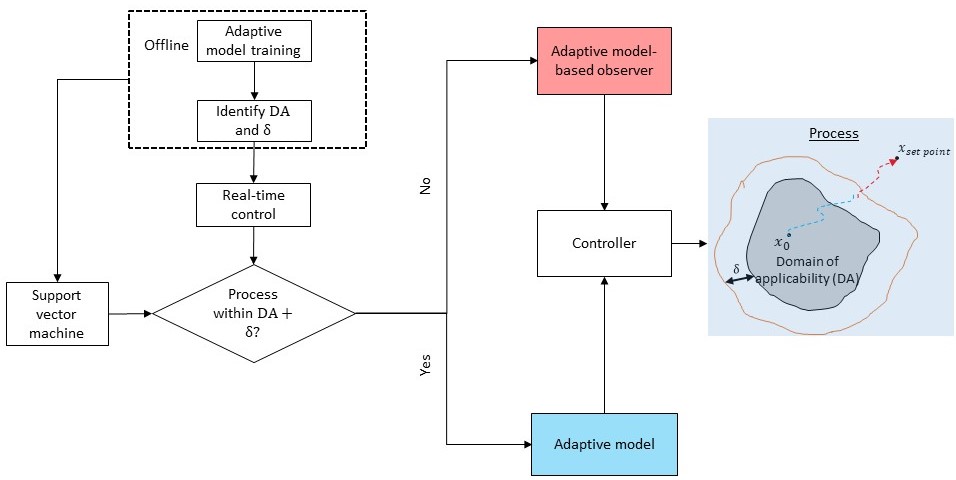
Effective process control is crucial, both within and outside the training regions. Chemical processes can often undergo changes in their operating targets due to several factors, including modified product quality, new product design, business demands, and process economics. Such scenarios can require controlling the process at completely new operating conditions outside the training region of the existing model. However, data-driven models usually fail to extrapolate beyond their training domains, thus restricting their applicability only to their training regions. Developing another model for the new operating scenarios is not a trivial task due to the unavailability of historical process data. Because of this, implementing data-driven process control in new operating settings outside the training region remains a major challenge. Motivated by this challenge, developing a systematic approach to control a process outside the training region of its model is an interesting direction. Accordingly, the adaptation capabilities of OASIS together with a state estimator can be useful in effectively controlling a process in new operation domains.
